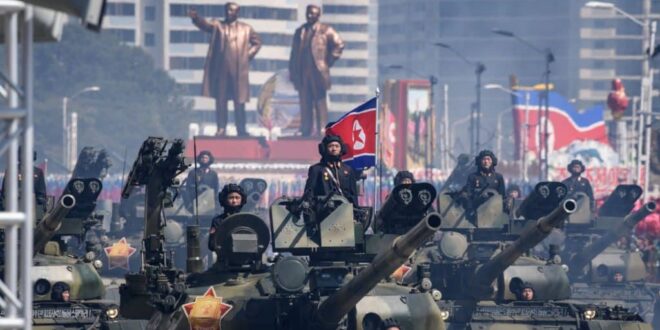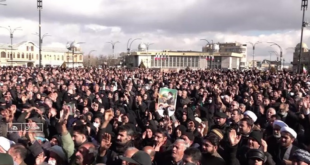A new version of the defunct Warsaw Pact is emerging in front of our eyes. With Russia and China as its two major driving forces, joined by regional powers such as North Korea and Iran, that brings with it its proxy terror organizations.
Recent reports indicate that up to 10,000 elite North Korean troops are undergoing a quick training session in Russia and are on their way to join Russian troops in their effort to push back Ukrainian units that invaded Kursk Oblast a few weeks ago. This reinforcement is too small to cause a dramatic change in the battlefield but it’s a move that should set alarm bells ringing in Washington, Taipei, Jerusalem, and other Western-oriented capitols.
Why Should We Worry?
First, it’s an indication of how desperate Putin is as he faces ever-increasing challenges in recruiting soldiers from within Russia to substitute for the large number of casualties that the Red Army has already sustained since the war started in February 2022. The more desperate he becomes, the higher the likelihood that he will consider using nuclear weapons to achieve his goals.
Second, this deployment can serve as a pilot towards a much larger involvement of the Korean People’s Army (KPA) in the Russia-Ukraine war and perhaps also in other wars. With an estimated 1.3 million soldiers, the KPA is numerically one of the largest military forces in the world. A scenario in which hundreds of thousands of KPA soldiers are sent to battle, first in Ukraine and later in other arenas, should not be underestimated.
Third, the alliance between Russia and North Korea is not one-sided. While the details of recent agreements between these countries are kept secret, it’s quite likely that in return for the aid that Russia is now getting from North Korea, it has committed to stand by the latter in case a war breaks out in the Korean peninsula.
Recent actions by Pyongyang, including the bombing of roads and railways connecting the two Koreas, conducting ballistic missiles and space vehicle tests and the harsher rhetoric used by its leaders have raised the tension in this region to a point where a military clash is more likely now than at any other point in the last twenty years or so. Securing support from Russia may encourage the unpredictable dictator in North Korea to take the risk and attack the South, a move that will greatly increase the risk for WWIII.
Fourth, Russia’s alliance with North Korean seems to be just one piece in a much larger and daring game played by Putin while building an axis of evil against the U.S. and its allies. It should be placed in the context of the tightening relationships between Russia and China, expressed recently by the mutual visits of Putin and Xi Jinping to each other’s country, the evolving love affair between Russia and Iran that is already supplying Putin with large quantities of lethal drones and missiles, Russia’s alleged interference in the recent elections in Georgia where a pro-Kremlin party was declared the winner, the recent Brazil, Russia, India, China, and South Africa Alliance (BRICS) meeting in Kazan where leaders from thirty-six countries came to discuss future cooperation with Russia and more.
A new version of the defunct Warsaw Pact is emerging in front of our eyes. With Russia and China as its two major driving forces, joined by regional powers such as North Korea and Iran, that brings with it its proxy terror organizations. Other smaller nations such as Belarus, Georgia, Armenia, join the fray as well, this new alliance is destined to become a formidable force that generates a clear and present danger to the U.S., its Western allies in Europe, the Middle East, Far East Asia, and elsewhere.
Let’s hope that whoever enters the Oval Office on January 20, 2025 will take this threat seriously and be ready to take suitable measures to counter it.
 Eurasia Press & News
Eurasia Press & News




